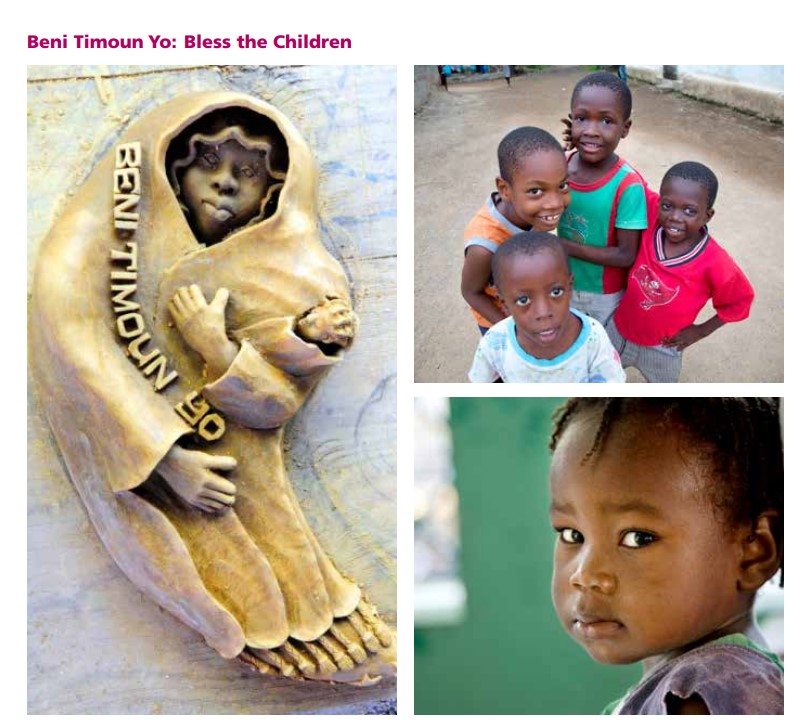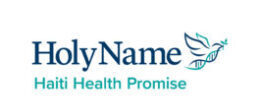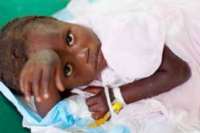After more than 3 years with no cases of
cholera reported in Haiti, on 2 October 2022,
the Ministry of Health reported two confirmed
cases of Vibrio cholerae O1 in the greater
Port-au-Prince area. According to the Pan
American Health Organization (PAHO), civil
unrest, lack of access to affected populations,
lack of fuel, and logistics constrains sadly
hindered emergency response operations.
More than two months of gang control of the main oil terminal exasperated the lack of clean water by severely curtailing the production of bottled water and the running of generators for water pumps. Ironically, violence and lack of fuel suppressed travel and helped contain the spread to regions beyond Port-au-Prince. In early November, the Haiti National Police freed access to the main oil terminal. Once a week, fuel returns to the market. Welcomed access to fuel opens the roads to travel and the most likely quick spread of cholera to other areas of the country.
Historically, cholera spreads with a deadly speed and track.
Children are often the primary victims.
On October 20, 2010, the first confirmed case
of cholera struck Haiti. The quick spread
resulted in more than 820,000 cases and more
than 10,000 dead. Current reports of cholera
mimic this frightening pattern. A mere twenty
days after the Ministry of Health noted the first
case, more than 1,700 suspected cases and 40
deaths were reported — nearly half affecting
children under age 14, according to UNICEF.
By mid-November, the estimated total of cases soared to 7,200 and the reported deaths reached 150 —
numbers likely a fraction of the actual totals.
Hôpital Sacré Coeur called to take the lead… again.
By the second week of November 2022, the Haiti Ministry
of Health contacted Hôpital Sacré Coeur and appointed the
hospital as the lead cholera treatment center for northern Haiti.
As the only hospital in the country with fuel reserves at that
time, Hôpital Sacre Coeur remained open and fully functioning.
The hospital also has an exemplary track record. In 2010, Hôpital
Sacré Coeur was an official cholera treatment center and
handled more than 1,400 cases in a few months — all according
to CDC standards.
Hôpital Sacré Coeur immediately geared up and enacted a plan
to reserve 110 beds for triage, treatment, and hospitalization.
Calls have gone out for IV hydration and oral rehydration
supplies, appropriate antibiotics, disinfectants, and personal
hygiene supplies. Thankfully, the hospital remains stocked with adequate personal protection gear and has ample handwashing stations. Hospital staff immediately put in place an outreach education program to advise residents of best practices for preventing cholera.
_
_
While Hôpital Sacré Coeur knows only too well how to diagnose
and treat deadly cholera, staff also knows the difficulties ahead.
Without access to clean water, water purification tablets, soap,
affordable and safe transportation to open hospitals, people
greatly reduce their chance of surviving this bacterial disease —
a disease almost unheard of in the United States. While relatively
simple to treat, without immediate medical attention cholera
can kill within a day. Malnourished people — which includes
most Haitians now — top the risk list. Undernourished and
dehydrated bodies slide quickly to organ failure and death
without immediate proper treatment.
The one key factor in the people’s favor is Hôpital
Sacré Coeur — a top-notch medical facility that is
still open and committed to saving their lives.
Thanks to your generous, continuing support, Hôpital Sacré Coeur stands out again — as the hospital that delivers during peaceful and crisis times. The range of staff experience, resilience, and compassion clearly knows no bounds. For the better part of a year, staff has successfully tackled an extended fuel crisis, supply chain interruptions, extreme inflation, and severe food shortages. While many hospitals throughout Haiti have sadly shuttered their doors due to external issues, Hôpital Sacré Coeur’s adaptable management, wise strategies, and courageous staff keep the hospital open and functional. As a result, patients stream in from other parts of the nation in search of excellent medical care.
Right now, preparing for a possible onslaught of cholera patients weighs heavily on our hearts
and minds. So too does providing all patients with excellent medical care and compassionate
companionship on their journey to wellness. You are the decisive player in this mission.
This holiday season, more than ever, YOU have an opportunity to save lives. What better gift
could you give?
Your help is essential to change the course of an otherwise inevitable outcome.
Please, donate today to purchase cholera supplies and to empower Hôpital Sacré Coeur staff
to continue their heroic journey to save precious lives.
Thank you, for your compassionate support.
With our deepest appreciation and gratitude for you.

David G. Butler, MD
Chairman, Haiti Health Promise of Holy Name (Founded as The CRUDEM Foundation)
Please send your tax-deductible donation to be received or postmarked by December 31st.
100% of every dollar supports programs and patient care at Hôpital Sacré Coeur.
Tax ID: 43-1660199 – The CRUDEM Foundation, Inc. Haiti Health Promise
of Holy Name is a dba (“doing business as”) of The CRUDEM Foundation.

















